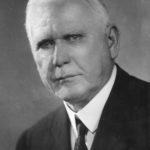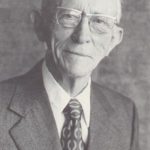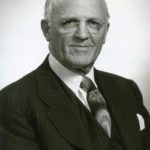Description
AFTER HIS LIKENESS
by
GEORGE W. TRUETT D.D., L.L.D.
2016
CHAPTER I We Would See Jesus. 5
CHAPTER II A Witness Sent from God. 14
CHAPTER III Obeying the Master 21
CHAPTER IV The Temptation of Our Saviour 29
CHAPTER V The Value of Temptations. 39
CHAPTER VI The Protest of Evil 46
CHAPTER VII Almost is Not Enough. 53
CHAPTER VIII A Test of Friendship. 63
CHAPTER IX Why Did Jesus Go Away?. 70
CHAPTER X Obedient Witnesses. 78
CHAPTER XI A Basic Principle of Life. 85
CHAPTER XII The Unashamed Believer 96
CHAPTER XIII Bought with a Price. 103
CHAPTER XIV The Supreme Gift to Jesus. 113
DEDICATION
This and other volumes
Of sermons and addresses
In this series by Dr. George W. Truett
Are dedicated to
His beloved
First Baptist Church, Dallas, Texas
Where most of them
Were delivered
FOREWORD
The late Dr. Douglas Southall Freeman, Virginia’s foremost citizen, editor, biographer and historian, in 1939 said of Dr. George W. Truett: “He is one of the most notable figures of twentieth-century Christianity—a man to whom, along with millions of Americans, I owe a debt in spirit.” There were many reasons for Dr. Freeman’s estimate, one of them being the fact that Dr. Truett ever proclaimed a very high standard of conduct for Christians and always practiced what he preached.
Every sermon in this volume emphasizes some phase of Christian living, such as witnessing, resisting evil, obedience, dedication of life, stewardship, giving Christ first place. For this reason the title is given to this volume.
Three sermons herein were first published in 1915 by Fleming H. Revell Co. of New York in a volume of sermons by Dr. George W. Truett which was compiled and edited by Dr. J. B. Cranfill. The title of that first volume of Dr. Truett’s sermons was We Would See Jesus. It is now out of print and the Fleming H. Revell Company has graciously given permission to reprint these sermons in re-edited form. Your present compiler and editor greatly appreciates this favor, because these particular sermons seem to fit so well in After His Likeness and also because they are so worthy of reprinting. They are: “We Would See Jesus,” “The Temptation of Our Saviour,” and “The Supreme Gift to Jesus.” That first volume of Truett sermons went through seventeen printings, a high tribute to the value of the messages therein.
What was said of Abel may also be said of George W. Truett: “He being dead yet speaketh.”
Powhatan W. James. Dallas, Texas
August 1, 1954
CHAPTER I We Would See Jesus
We would see Jesus. —John 12:21
The age-long cry of the human race has been for the revelation of a personal God, able and willing to forgive human sin and to give rest to the human conscience. From the days of Job, man’s cry has been: “Oh, that I knew where I might find him!” Plato voiced such a cry when he said, “We look for a God-inspired man, who will show us our duty and take away the darkness from our eyes.” Through long generations of Jewish history there thrilled the longing, voiced in the prophetic hope of a coming Messiah, able and willing to meet man’s deepest needs. In the fullness of time he came, and the fame of his words and deeds soon filled the land. A great feast was had in Jerusalem, and along with the thousands who attended it there came some Greeks, whose request also was: “We would see Jesus.” That was the first voice from the outside world that gave a hint of the awakening of its sleeping conscience to the fact that Jesus was to be the Saviour and Sovereign over the Gentile as well as the Jewish world.
Marvelous was the impression made upon Jesus by that request of the Greeks. It came at an hour when his work seemed ready to fail; but from that hour there was a new tone of triumph in his words. No more do we hear his plaintive cry over unbelieving Jerusalem but his thoughts are bravely turned towards Calvary. “The hour is come that the Son of Man should be glorified. Verily, verily, I say unto you, except a grain of wheat fall into the ground and die, it abideth alone; but if it die, it bringeth forth much fruit.” He speaks again: “Now is my soul troubled; and what shall I say? Father, save me from this hour: but for this cause came I unto this hour. Father, glorify thy name. Then came there a voice from heaven, saying, ‘I have glorified it and will glorify it again.’ ” His heart thrills with the sense of his glorious mission, and he speaks again: “Now is the judgment of this world; now shall the prince of this world be cast out. And I, if I be lifted up from the earth, will draw all men unto me.”
Why should we see Jesus? We may well wish to see him because of what he was and is in his own personality. He was both God and man, the God-man in one person. Never did hyphen elsewhere mean so much as here, the God-man. It both joins and divides. It marks distinction and yet unity. Jesus was as really God as though he were never man, and as really man as though he were never God. In the face of this truth, well might the chief apostle say: “Without controversy, great is the mystery of godliness: God was manifest in the flesh, justified in the Spirit, seen of angels, preached unto the Gentiles, believed on in the world, received up into glory.” The most stupendous truth ever submitted to human thought is that stated in John’s five simple words: “The Word was made flesh.”
In the study of Jesus we need always to begin with his humanity. That is where the early disciples began, and that is the rational order. A proper conception of his humanity must be the basis for a proper understanding of his divine nature and work.
In these days men sometimes tell of their difficulties concerning the deity of Jesus, rather than his humanity. In the earlier days unbelief made its stoutest assaults upon his humanity. The earlier heresies were gnostic heresies that denied that Jesus was really a man. One school of gnostics held that the body of Jesus did not belong essentially to his nature, but that the Messiah descended upon Jesus at his baptism, and left him before his death. Another school held that his body was but a mere illusion, a veneer of human nature, with God-hood hidden behind the face of a man. And still another school held that his body was a body from heaven, having nothing in common with earth.
Against all such theories the title which Jesus chose for himself attests his true and real humanity. “He took not on him the form of angels; but he took on him the seed of Abraham.” He was a vital part of the race that he came to save, bone of its bone and flesh of its flesh. He had a human mother and a human birth. He grew, as did others, in wisdom and in stature. His feelings and needs were as those of other men. He was weary and hungry and thirsty. He craved human companionship and sympathy. He was “a man of sorrows and acquainted with grief.” “Wherefore, in all things, it behooved him to be made like unto his brethren, that he might be a merciful and faithful High Priest, in all things pertaining to God to make reconciliation for the sins of the people.”
Behold him, not “A Son of Man,” but “The Son of Man,” for all humanity was summed up in him. He was the one perfect, ideal, complete man. “Which of you convinceth me of sin?” was and is his fearless challenge. “I find no fault in him” was and is the universal testimony of his friends and foes. In himself Jesus combines all those gracious qualities that abode severally in his people. All other men have but fragmentary goodness and greatness; that of Jesus is complete, perfect, wanting nothing. The search-light of criticism has been focused on Jesus through the long centuries, and yet it has failed to find in him one suggestion of sin, one ill-spoken word, one selfish deed. Men talk about not believing in miracles. What will they do with Jesus of Nazareth? He is the preeminent miracle of all the ages. Who was that one and only perfect man? Was he not more than a man?
The only rational solution of the humanity of Jesus is the acknowledgment of his deity. For men to laud Jesus as a great and good man, while they repudiate his deity, is to involve themselves in logical contradictions and moral inconsistencies which it is impossible either to reconcile or understand. Remember the claims that this wise and holy One makes for himself: “I am the light of the world.” “No man cometh unto the Father but by me.” “He that hath seen me hath seen the Father.” “I and the Father are one.” “Come unto me, all ye that labor and are heavy laden and I will give you rest.” If Jesus Christ be not more than a man, what must be thought of the presumption and vanity of these mighty claims? How is it that man’s conscience accepts without protest or hesitancy these mighty claims? That question must forever remain an insoluble mystery on any other premise than that Jesus was God manifest in the flesh, in whom dwells all the fullness of the God-head bodily.
From his cradle to his grave the proofs of his Godhead were, in his own person, finding constant illustration. The shepherds came to salute him as king, and the magi, with their rich gifts, came from the Far East to worship him, while he was yet a tiny babe upon his mother’s heart. While a lad only twelve years of age, his superlative wisdom utterly astounded the learned doctors in the Temple. As a young man he patiently wrought at the workman’s bench, teaching us how the Infinite One can calmly wait, girt with the consciousness of his divine mission. When he came to prosecute his public ministry he had only to speak the word and the winds were hushed, the storms calmed, the hungry thousands fed, the sick made well and the dead brought back to life. He lived as none other ever lived. He died as none other ever died, and from Olivet he went back to his Father the consummator of history, the victorious Saviour of a lost world.
“We would see Jesus,” not only because of what he is in his matchless person, but, also, because of what he is and does for man. He is man’s Saviour from sin. “Thou shalt call his name Jesus, for he shall save his people from their sins.”
If Jesus were merely a perfect example or a matchless teacher for man, then he could not encompass man’s deepest needs. Sin is the terrible tragedy, the intolerable yoke in every human life. Our highest and eternal joy in seeing Jesus is in seeing him as our Saviour from sin. By his expiatory death on the cross, “the just for the unjust,” Jesus answers the eternally vital question how a guilty sinner may have forgiveness and salvation and happiness here and forevermore.
Forever God, forever man,
My Jesus shall endure:
And fixed on him my hope remains
Eternally secure.
It was said of Mozart that he brought angels down, and of Beethoven that he lifted mortals up. Jesus does both and more. He is God’s way to man, he is man’s way to God, the true Jacob’s ladder between earth and heaven.
And the glorious truth is that his gospel may be put into the crucible of human experience. Man may personally know whether Jesus can give peace to the troubled conscience, whether he can give light for life’s bedarkened problems, whether he can give healing for earth’s staggering sorrows. The world is filled with men and women, this hour, who vainly sought everywhere for peace and light and help, but they found them not until they found them in Jesus. These men and women tested him, and in their deepest consciousness they know better than they know anything else that through him their darkness was dispelled, their burdens lifted, their victories won. Tell me how it is that, of all the sons of men since the world began, it was never heard that a man was saved by Plato, or by Socrates, or by any one else but by Jesus Christ alone. How is it that he alone has been able really to redeem men from the fatal grip of appetite and passion and sin? There can be but one logically intelligent answer, and that answer is that in Jesus Christ we have the only begotten Son of God, Who is the Lamb of God, the Light of the World, the one divine and all-sufficient Saviour.
How may we see Jesus? May we see Jesus today? Not, to be sure, with our physical eyes, but with the eyes of the mind and heart. May we approach him, realize him, be conscious of his personal presence and help, even as we are conscious of the presence and help of parent or teacher or dearest earthly friend? These are vital questions that go to the depths of our hearts. I make bold to answer them that Jesus may be, ought to be, more real to us than is any other person in all the world. Jesus is not some mere theory, some inspiring memory, some vague, personal influence; but he is a Person, to be approached, to be felt, to be trusted, to be loved, and to be obeyed even unto death. How may we thus see Jesus as we are daily driven by the manifold problems and duties of the earthly life?
If we would see Jesus, we must make much of his Book. If we would know a person, we must understand him. If we would trust a person, then our trust must be based on knowledge. Jesus cannot be seen, will not be graciously real to the man who neglects the Bible. It is true that “the heavens declare the glory of God, and the firmament showeth his handiwork.” But, left to nature, the Bible taken away, man cannot know of God’s tenderness and love, cannot know how to love and trust and obey him properly. Though man might name every star that blazes in the eternal depths; though he might map the heavens and tell the constellations as his familiar friends; though he might understand the voice of the flowers; though he might catch the monologues of the mountains, the dirges of the oceans, the symphonies of the spheres: though all nature might speak to him the mighty secrets of its origin and Maker, in all this man would see only the majesty and mightiness of God. In God’s hand would be the sword of justice, on his lips the word of wisdom, and around him the resplendent robe of righteousness, at once man’s envy and despair. Only in the Bible may man learn of the mercy of God in the forgiveness of sins through Jesus Christ.
God’s book must be read, and read humbly, reverently, earnestly, continuously, if we would see much of Jesus. If you have read the life of Chinese Gordon, one of the noblest Christians of his or any other age, you discerned that the secret of that wonderful life was in the fact that he spent long hours every day in the study of the Bible. He had many books in the Soudan, but this was the testimony that he left concerning them: “I may as well part with all my books except two, the Bible and the Concordance, so far as they contain essential knowledge.”
If we would see Jesus, we must know much of secret prayer—mark you, of secret prayer. Secret prayer is the unerring thermometer to our life of prayer. If ever we are sincere in prayer, it is when we are in secret prayer. It is then, if ever, that we are conscious of God. Jesus said, “But thou, when thou prayest, enter into thy closet, and when thou hast shut thy door, pray to thy Father which is in secret; and thy Father which seeth in secret shall reward thee openly.” How much do we give ourselves to secret praver? Is it not just here that most of all we fail? We go about the doing of many things, but is not secret prayer one of the things that we largely leave undone? It takes time to become spiritual, and time spent alone with God is the best spent time in all one’s life.
Again, if we would see Jesus, we must watch against sin, with uncompromising warfare. There must be absolute sincerity and whole-hearted thoroughness at this point. That were but hollow mockery for a man to pray for forgiveness, his own heart the while burning with hatred and festering with grudges against some fellow creature. The amputating knife of genuine repentance must be put to sin, if we would hope for the smile of Jesus and for the benefit of his blood which cleanseth from all sin. God cannot afford to answer some men’s prayers! For him to do so would be to put a premium upon sin. The hidden wedge of gold and the Babylonish garment must be disclosed and restored if men may hope for answered prayer. It is sin that separates between man and God. Sin is a veil through which Jesus cannot be seen. Sin is an insulator that cuts off the currents between man and God. It is “the supplication of a righteous man that availeth much.” “If I regard iniquity in my heart, the Lord will not hear me.”
No man who is not keenly sensitive to sin can know much or see much of Jesus. “Blessed are the pure in heart, for they shall see God”—see him here and now in daily experience. “Who shall ascend into the hill of the Lord? Or who shall stand in his holy place? He that hath clean hands and a pure heart, who hath not lifted up his soul unto vanity or sworn deceitfully. He shall receive the blessing of the Lord, and righteousness from the God of his salvation.” Oh, what need we have for frequent and most rigid self-examination, that we may become increasingly sensitive to every approach of sin! And we are to watch with all diligence against the little sins. It was the little foxes that spoiled the vines. If we carelessly cherish what may seem to us to be inconsequential sins—for example, pride, which goeth before destruction, and envy, which is as rottenness in the bones —these sins will consume us as doth a cancer and more and more will they hide from us the face of Jesus.
If we would see Jesus, we need to magnify the blessedness of Christian fellowship. In the old-fashioned experience-meeting men and women came together just to tell, timidly though joyfully, what they saw and felt and knew of the things of Jesus — would to God our churches had it back again! “Then they that feared the Lord spake often one to another, and the Lord harkened and heard it, and a book of remembrance was written before him for them that feared the Lord, and that thought on his name.” Sometimes a preacher’s sermonic fires burn low, and not a text will give up its treasures, dig for them though he may. What does the preacher do? Let such preacher find and talk with some one who has a vital knowledge of the saving grace of God, and sermonic fires will immediately burn again.
Once again, if we would see Jesus, we must be busy for him. The indolent Christian cannot see much or know much of Jesus. Idleness is one of the most terrible foes to grace. It is the flowing stream that is the healthy stream. The stagnant pond breeds miasma and malaria and death. Many a Christian who is spiritually sick, he knows not why, would thrill with a new joy and new visions of Jesus if only he would be busy for him. Doubt, unbelief, despondency are all dispelled by activity. It is the man who does Christ’s will unto whom is revealed his doctrine.
And still again, if we would see Jesus as we ought and as we may, we must give ourselves completely to his guidance and government Jesus will be lord of all, or he will not be lord at all. The reason so many people get so little out of their religion is that they put so little into it. If men would see Jesus and thus experience the deepest of joys, and from him have the noblest victories in their lives, then, for all this, they must pay the requisite price. Paul paid such price. Gladly did he suffer the loss of all things, home, kindred, inheritance, comforts, country, life itself, that he might have the excellency of the knowledge of Christ Jesus, his Lord. Do you wonder that he had visions and revelations which could not be put into speech? Do you wonder that his letters abound in doxologies, as he contemplates the unfolding glory of his Lord? Paul paid the price for his glorious visions of Jesus.
Here, then, is the vital question for us. Will we pay the price to see Jesus as we need to see him, as he would have us see him? Are we willing to live for him, to put him first, to do his will, be what it may, lead where it will? Right here is the supreme battle of the Christian life. It is the battle between Christ and self. The self-centered life will not see Jesus, and must surely fail. The Christ-centered life will mount higher and higher in its visions of Jesus, and will more and more exult in the victory that overcomes the world.
Oh, men and women, if we will pay the price, we may daily see Jesus—may know that he walks with us, talks with us, and lives with us, and lives in us, our certain help for every day and duty of earth. And thus seeing him and serving him, brighter and better shall be all our days, even unto that blissful day when we shall pass through the gates of the celestial city, where we shall be “like him, for we shall see him as he is.”



